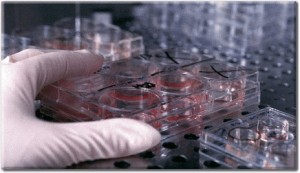 [1]After my many years of writing about stem cell research, I am still shocked when the media get the facts horribly wrong. I guess that comes from the assumption that to report the news, one must actually understand the subject matter.
[1]After my many years of writing about stem cell research, I am still shocked when the media get the facts horribly wrong. I guess that comes from the assumption that to report the news, one must actually understand the subject matter.
After last month’s confusion [2] over whether research that produced mini-kidneys in the lab used induced pluripotent stem cells (iPSCs) or embryonic stem cells, this Associated Press [3] report caught my eye. It is about an Oregon doctor that has had his license suspended over stem cell treatments he was performing. Read this:
In 1998, researchers discovered how to derive stem cells from human embryos, and in 2006, they determined how to induce some specialized adult cells to take on the genetic characteristics of stem cells. These are called induced pluripotent stem cells, or iPSC.
iPSC have long been used to treat cancers such as leukemia and lymphoma — it’s what doctors are using when they do bone marrow transplants. The cells are being studied for everything from heart disease to diabetes, but it’s too soon to know if these approaches are safe or effective.
This reporter is clearly confused. Regular adult stem cells, which have been used to treat leukemia and lymphoma for decades, are found naturally in bone marrow and other tissues. In contrast, iPSCs are adult cells, like skin cells, that have been reprogrammed back to an embryonic-like state. So while adult stem cells are naturally found in many parts of the body, iPSCs are embryonic-like stem cells that are created in the lab. iPSC technology is relatively new and is not being used to treat patients. As far as I know, there is only one clinical trial [4] going in the world right now using iPSCs in humans.
Because iPSCs are pluripotent, or able to become most or all of the 200 cells types in the body, they carry the same safety risks as embryonic stem cells. Regular adult stem cells, like those that come from bone marrow, do not carry the those risks because they are not quite as plastic as embryonic stem cells and that is why adult stem cells have already been used for decades to treat patients for a multitude of conditions.
So iPSCs are not what “doctors are using when they do bone marrow transplants.”
Honestly, I do not know how the public is expected to be able to navigate the issues surrounding stem cell research if basic news reports can get the facts so muddled. Once again the media, whether intentionally or not, misleads the reader. Just more reason for us to be skeptical of what we read in mainstream news outlets and look deeper for different sources of information.